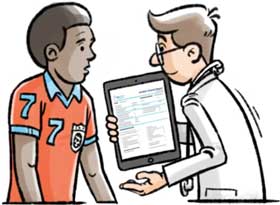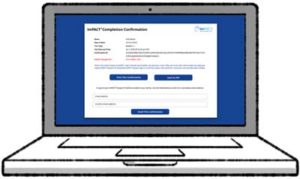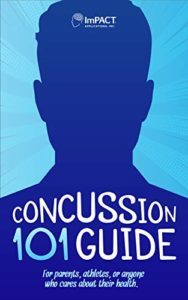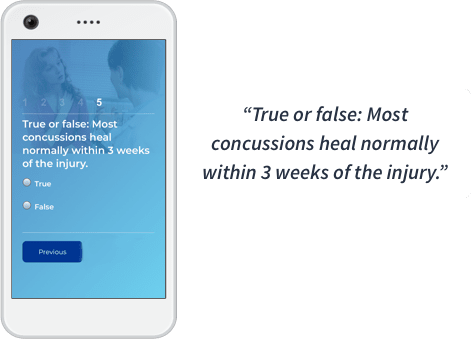DO I HAVE A CONCUSSION?
HOW TO TELL IF YOU HAVE A CONCUSSION?
- Pay attention to concussion symptoms. They vary from person to person but common ones include vomiting, dizziness, headaches, vision problems, difficulty concentrating, or anxiety.
- Look for concussion signs: sleeping more or less than normal, easily distracted, light or noise sensitivity, change in behavior, or increased anxiety.
- Realize that concussions can happen in everyday activities. Falls are the number one cause.
- Find a trained concussion specialist.They can help diagnosing a concussion and getting you the right treatment.
Concussions can happen in very unexpected ways - not just contact sports. You've recently hit your head, fallen, or gotten in an accident and you think you might have a concussion.
Some of the early concussion symptoms can be intense, and some may not even show up until the day after your injury. Don't just assume you'll be okay after a few days. If you think you have a concussion, follow these steps to get the care you need:

1. FIND A TRAINED HEALTHCARE PROVIDER
Finding a trained healthcare provider is an important first step in concussion care. Concussion diagnosis and management should always be done by an individual who's trained in concussion care.
This could be a neurologist, a physician, or other concussion specialists. Whoever it is, the trained healthcare provider uses multiple tools to help determine whether you have a concussion and your treatment plan.

2. SAVE YOUR ID
A healthcare provider will likely administer ImPACT, neurocognitive tests that help them determine your cognitive functioning after a concussion. When you take ImPACT, you're given a unique ImPACT Passport ID.
This allows you to grant test results access to any healthcare provider that uses ImPACT. If you need to see a concussion specialist, having your ImPACT Passport ID handy ensures that the healthcare provider has all the information they need.
Be sure to download the ImPACT Passport app so you have your ImPACT Passport ID when you need it.

3. TRACK YOUR SYMPTOMS
Between visits, it's important that you track your concussion symptoms so your doctor knows how you're doing day-to-day.
The ImPACT Passport app allows you to record your daily symptoms. Your doctor can access them and check in to make sure you're on the right track to recovery.


